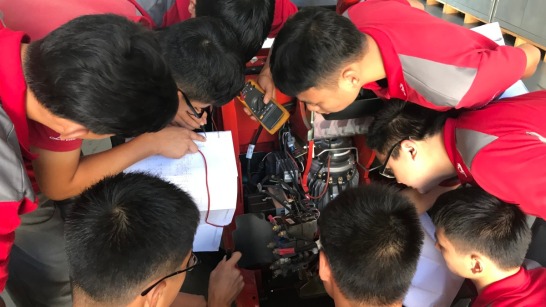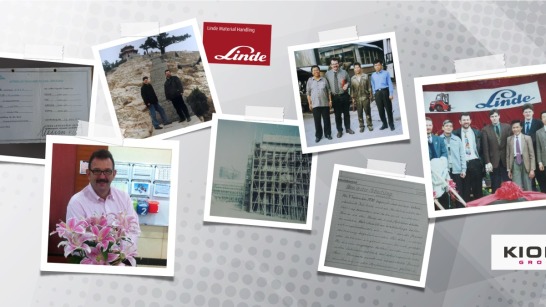A Dedicated Linde Material Handling “University for Forklift Trucks”
Linde Material Handling, another subsidiary of the KION Group, also took the concept of dual vocational training and work to China, as early as 2002. The “Linde Technik Training Center” located at the headquarters in Xiamen is one of the first of its type in the industry; all the teaching materials and methods used are very similar to those at the German headquarters in Aschaffenburg. Each year, students are given the opportunity to do a one to two-month internship, where they are assigned to various workshops, depending on their fields of study.
“It is not only our products and services that need to move with the times, but our recruitment and training models too,” says Chen Xiao, Staffing & Employee Relationship Manager at Linde Material Handling. It was for that reason that the company also launched the Pre-Junior Service Technician Training project (or PJST for short) in China in 2010. “Linde wants to act early, inform partner education institutions about our training programs, and accept interested applicants,” he says of the idea behind the project.
He refers to accepting rather than hiring as technical college students spend all of the last year of the training at Linde as part of the PJST program. Linde Material Handling has sole responsibility for everything from the content of the lessons to the teaching staff. The students, who come from various towns and cities, come together for this at the company’s regional headquarters. For many, this is the starting point for their career.
Song Zan, who is now a Customer Service Supervisor, was one of them. As one of the first graduates of the PJST program, he is now also a member of the training team. He is very proud of this project: “Linde has a comprehensive and professional teaching plan and the lecturers are experienced engineers and experts, who place a great deal of emphasis on the combination of theory and practice and expect a lot of the students.” Unofficially, the PJST training form Linde in China is referred to as the “University for Forklift Trucks” and there is also a great deal of interest now among the competition.
In July 2020, around 100 program participants from 26 education institutions were successfully integrated into the regional service teams following a training and internship period.
Investing in Young People
When the vocational training ends at the KION brands, this is also the start of continuous training: The annual professional certification is a prerequisite for every service technician to be able to practice their profession and is also a prerequisite for promotion.
“We hope that our attractive and sustainable training concept will enable us to attract and employ more qualified young people. By investing in young people, the company is investing in the future,” says the HR expert.



